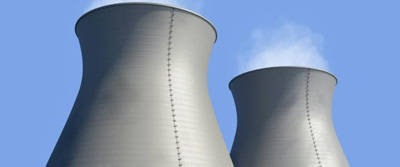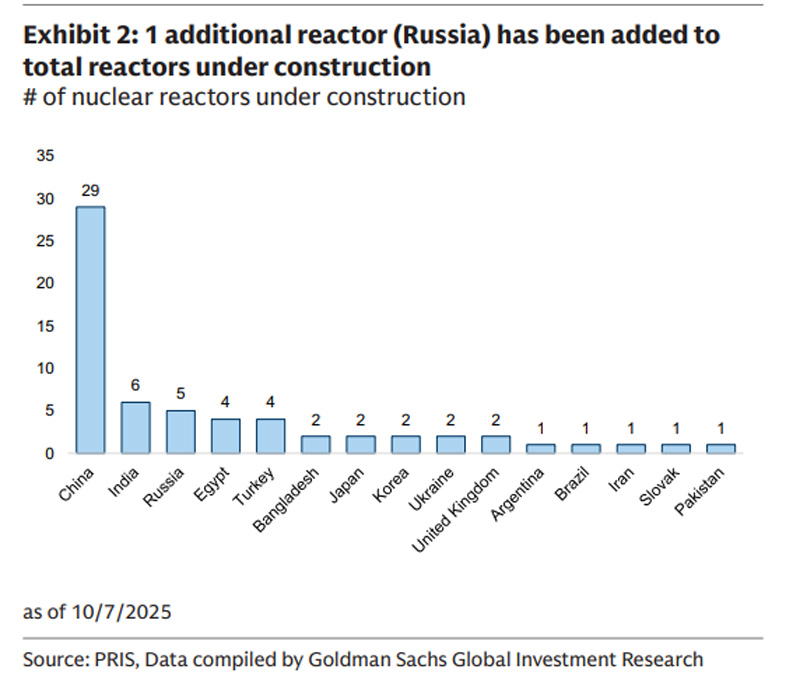Three Mile Island Reactor Gets a $1 Billion Government Lifeline
Tyler Durden
 One week ago we said that "hundreds of billions" of dollars are about to be loaned out to nuclear projects by the US government. Well, the first billion is about to be wired. One week ago we said that "hundreds of billions" of dollars are about to be loaned out to nuclear projects by the US government. Well, the first billion is about to be wired.
The Wall Street Journal reports Constellation Energy has secured a $1 billion federal loan from the Energy Department's Loan Programs Office (LPO) to restart the Unit 1 reactor at the Three Mile Island reactor plant in Pennsylvania, recently renamed the Crane Clean Energy Center. Constellation has said it would pay about $1.6 billion to restart the plant in 2027.
CEG stock shot up 5% after hours on the news.

The plant's Unit 2 reactor infamously suffered a partial meltdown in the 1970s, but Unit 1 continued to operate without issue for decades until it was shut down in 2019. The reactor was shuttered due to its inability to compete economically with cheap natural gas, as the company notes “before it was prematurely shuttered due to poor economics, this plant was among the safest and most reliable nuclear plants on the grid”.
Constellation announced the intention to restart Unit 1 after Microsoft signed a $16 billion, 20-year offtake agreement in an effort to secure a carbon-free source of reliable energy for their data centers.
Energy Secretary Chris Wright said Three Mile Island will add around 800 megawatts of power generation to the grid. Wright added that “constellation’s restart of a nuclear power plant in Pennsylvania will provide affordable, reliable, and secure energy to Americans across the Mid-Atlantic region. It will also help ensure America has the energy it needs to grow its domestic manufacturing base and win the AI race.”
WSJ notes “the deal calls for Constellation to revive the plant’s undamaged reactor, which was too costly to run and closed in 2019. The power generated will be sold to Microsoft under a 20-year deal. The tech industry has a nearly insatiable demand for 24-hour-a-day power for AI data centers.”
The 835 MW reactor produces enough power for approximately 800,000 homes and will provide reliable and affordable baseload power to the PJM Interconnection region. Along with clean energy, the project will strengthen grid reliability and create over 600 jobs.
Thomas Hochman, Director of Energy & Infrastructure Policy with the Foundation for American Innovation, notes multiple important points with the latest closed LPO deal, in particular that it’s “it’s really the first LPO loan to tackle the issue of AI-driven load growth”.
He also said that it's a novel construct between a technology firm and an energy developer and represents the tech sector's continued move into the infrastructure space.Importantly, he added that this is “not a behind-the-meter deal. The electrons from Three Mile Island will flow directly into PJM, benefitting ratepayers and adding extra reserve margin to the grid.”
As for today's loan, it's just the first of many in a space we expect to see a flood of capital...

... as the US scrambles to catch up to China's massive nuclear head start.
 our mission: our mission:
to widen the scope of financial, economic and political information available to the professional investing public.
to skeptically examine and, where necessary, attack the flaccid institution that financial journalism has become.
to liberate oppressed knowledge.
to provide analysis uninhibited by political constraint.
to facilitate information's unending quest for freedom.
our method: pseudonymous speech...
Anonymity is a shield from the tyranny of the majority. it thus exemplifies the purpose behind the bill of rights, and of the first amendment in particular: to protect unpopular individuals from retaliation-- and their ideas from suppression-- at the hand of an intolerant society.
...responsibly used.
The right to remain anonymous may be abused when it shields fraudulent conduct. but political speech by its nature will sometimes have unpalatable consequences, and, in general, our society accords greater weight to the value of free speech than to the dangers of its misuse.
Though often maligned (typically by those frustrated by an inability to engage in ad hominem attacks) anonymous speech has a long and storied history in the united states. used by the likes of mark twain (aka samuel langhorne clemens) to criticize common ignorance, and perhaps most famously by alexander hamilton, james madison and john jay (aka publius) to write the federalist papers, we think ourselves in good company in using one or another nom de plume. particularly in light of an emerging trend against vocalizing public dissent in the united states, we believe in the critical importance of anonymity and its role in dissident speech. like the economist magazine, we also believe that keeping authorship anonymous moves the focus of discussion to the content of speech and away from the speaker- as it should be. we believe not only that you should be comfortable with anonymous speech in such an environment, but that you should be suspicious of any speech that isn't.
www.zerohedge.com
| 

